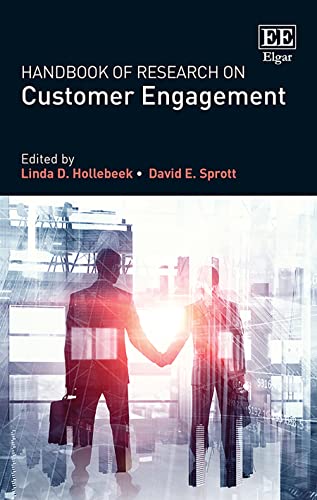Kris Lindsey Hall
Associate Professor Louisiana State University
- Baton Rouge LA
Dr. Hall's interests fall at the intersection of the marketing strategy and consumer behavior research.
Areas of Expertise
Biography
As an organizational frontline and service marketing researcher, her primary areas of interest fall at the intersection of the marketing strategy and consumer behavior research domains, including:
• Frontline employee-customer interactions (emphasis on service failure and recovery)
• Stakeholder engagement and multi-actor collaboration
• Firm strategy at the sales-service interface
• The role and influence of interdisciplinary research for service management
Kris’ research has been accepted or published in the Journal of Service Research, Journal of Business Research, Journal of Service Management, Journal of Marketing Theory and Practice, International Journal of Physical Distribution & Logistics Management, Journal of Personal Selling and Sales Management, Journal of Internet Commerce, and International Business Review, among others.
Kris has received five grants and a fellowship to pursue her research, which has been presented at over 38 international, national, and regional conferences. She has also been instrumental in developing the LSU Behavioral Lab. Previously, she gained professional experience in marketing, branding, customer-service, and cost-control administration in the hospitality, financial services, and petrochemical industries.
Research Focus
Services Marketing & Customer Engagement
Dr. Hall’s research focuses on services marketing—frontline customer–employee engagement, technology integration, and supply-chain influences on service outcomes. She combines field experiments, survey analytics, and service-design modeling to show how interaction quality, digital tools, and operational linkages drive customer satisfaction and performance.
Education
The University of Alabama
M.S.
Marketing
2013
The University of Alabama
Ph.D.
Marketing
2017
Accomplishments
Tiger Athletic Foundation Teaching Award
2020
Best Paper in Services, Retailing, and Customer Experience Track, American Marketing Association
2021
Young Scholar Research (YSR) Award Finalist, 5th Annual YSR Competition
, 2021
Dean’s Excellence in Teaching Award, E.J. Ourso College of Business
2022
Media Appearances
What degrees are LSU students getting? Engineering, business soar, humanities decline
The Advocate online
2023-08-31
Beyond the available options presented, LSU assistant professor of marketing Kris Lindsey Hall said the E.J. Ourso College of Business faculty is intentional about capturing students' attention in their principal classes and building relationships to retain them within their programs.
“I work with seniors and by the time they come to me, they’ve already had a really supportive and naturing environment," Hall said. "I think that really helps us with graduating so many students because they come in and they want to stay and we give them the tools that they need to be able to do that.”
Articles
Bridging two tales of engagement: a meta-analytic review of employee engagement and customer engagement in service contexts
Journal of Service Management2023
Purpose
Employing a service-profit chain (S-PC) framework, this manuscript investigates the relationship between employee engagement (EE) and customer engagement (CE) within service contexts and explores how a mediating mechanism, service employee work performance (SEWP), links EE with CE.
Enhancing CSR and purchase intent in service recovery: investigating the interplay of prosocial compensation, hedonic and luxury purchases
Journal of Services Marketing2024
Purpose
As a company’s corporate social responsibility (CSR) image can protect from the backlash of a service failure, it is important to remind customers of the company’s CSR commitment when a service failure occurs. One novel mechanism for doing so is through a prosocial service recovery. However, explorations of such service recovery strategies are relatively unknown. Thus, this paper aims to examine how recoveries including prosocial elements compare to those only utilizing monetary compensation strategies and to explore boundary conditions for such effects.
Profiling as a Service Failure
Journal of Service Research2025
Profiling occurs when negative stereotype assumptions based on personal characteristics (e.g., gender, age, race, or sexual orientation, among others) are applied to individuals, resulting in discrimination. Using a mixed-methods approach, this work explores how customers experience or anticipate profiling in a service setting, which constitutes a special type of service failure. Using a critical incident technique, study 1 establishes that customers feel stereotyped in retail service settings and that these profiling experiences constitute service failures that generate various emotions and coping behaviors, which are exacerbated when customers anticipate profiling will occur.
Socially responsible cocreation in service recovery: the role of pride in prosocial compensation
European Journal of Marketing2025
Purpose
This study explores the incorporation of prosocial compensation in service recoveries by allowing customers to cocreate the process through compensation choice, explains the underlying mechanism driving these results and identifies a boundary condition for these effects.
Design/methodology/approach
Three scenario-based experimental studies are conducted to test the proposed hypotheses.
Online chat encounters: Satisfying customers through dialogical interaction
Journal of Business Research2025
This research examines the effects of dialogical interaction within online chat (DIOC) on satisfaction, given the marketplace prevalence of these online customer–agent interactions and limited scholarly evidence about their impact. Drawing on service-dominant logic, person–environment fit theory, and existing dialogical interaction (DI) literature, the authors assess predictions using six experiments, including one on the live chat platform Slack, to demonstrate that DIOC significantly boosts satisfaction, especially among customers with utilitarian versus hedonic motives. This effect is explained by goal congruency. The authors also investigate boundary conditions where DIOC’s impact varies, finding it more beneficial for utilitarian-motivated customers when customer–agent similarity is low.
Affiliations
- American Marketing Association (AMA)
- Academy of Marketing Science (AMS)
- Society for Marketing Advances (SMA)
- National Center for Faculty Development & Diversity (NCFDD)
- Consortium for the Advancement of Research Methods and Analysis (CARMA)




